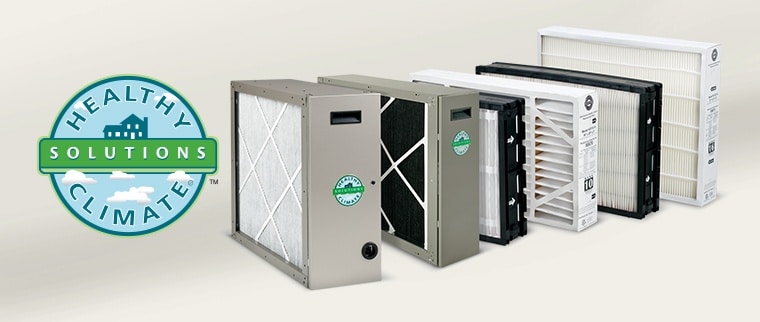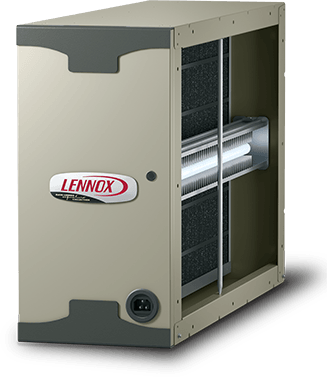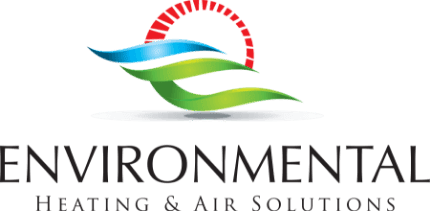You deserve to have a home with fresh, clean air, and we offer home performance services that will greatly improve indoor air quality.
Solutions for Northern California Allergy and Asthma Sufferers
If you suffer from allergies or asthma, even a small amount of dust, pollen, or other airborne impurities can make you miserable. Environmental Heating & Air Solutions offers many ways to achieve indoor allergy reduction in your Northern California home.

Since 2010, cleaning indoor air has been one of the services our highly trained, experienced professionals have provided. Expert installation and advice, top-rated products, and superior customer service have earned us a reputation as the trusted choice for air purifiers, duct cleaning, and other services that improve your home’s air quality and help those with asthma and allergies breathe a little easier.
The Fast, Affordable Way to Enjoy Improved Air Quality
 Even if you don’t have asthma or an allergy problem, improved air quality is something most homeowners would like to achieve. EHA Solutions installs the Lennox PureAir™ air purification system that dramatically improves air quality.
Even if you don’t have asthma or an allergy problem, improved air quality is something most homeowners would like to achieve. EHA Solutions installs the Lennox PureAir™ air purification system that dramatically improves air quality.
The numbers are impressive:
- Removes 99.9% of pollen, dust, and pet dander
- Removes 90% of viruses such as MRSA, flu, and cold
- Eliminates 50% of household odors and chemical vapors
This whole-house system cleans the air throughout your home—and requires very little electricity to do so. Not only is this system highly effective at improving air quality, but it’s also easy on your utility bills as well.
In addition to our air purification system, we offer other ways to improve air quality, including:
- Air Sealing
- Air Duct Cleaning
- Attic Fans
- Air Ventilation Solutions
Get a Free Quote from a Home Performance Specialist Today!
Our Northern California home performance specialists will visit your home and create a plan that addresses your specific concerns. You may need only one of the services listed above, or more than one may be recommended. Either way, you’ll enjoy competitive prices and budgeting made simple with our flexible financing solutions. Call Environmental Heating & Air Solutions today to learn more, or fill out our online contact form for a consultation and free estimate.
Explore Options
Frequently Asked Questions
How does indoor air quality affect allergies?
Indoor air quality can significantly impact allergies. Poor air quality can contain allergens like dust, pollen, pet dander, and mold spores, which can trigger allergic reactions and respiratory issues. Improving air quality can help alleviate these symptoms.
What are common indoor allergens?
Common indoor allergens include dust mites, pet dander, mold spores, and pollen. These allergens can accumulate in your home and affect air quality, exacerbating allergy symptoms.
How can I improve the air quality in my home to reduce allergies?
Improving air quality can be achieved by regularly cleaning your home, using air purifiers, maintaining proper ventilation, and using high-efficiency particulate air (HEPA) filters in your HVAC system. Environmental Heating & Air Solutions can help with professional air quality assessments and solutions.
What role does HVAC maintenance play in indoor air quality?
Regular HVAC maintenance is crucial for maintaining good indoor air quality. It ensures that your system is clean and functioning properly, reducing the presence of allergens and improving overall air quality. Environmental Heating & Air Solutions offers comprehensive maintenance services to keep your system in top condition.
Can air purifiers help with allergies?
Yes, air purifiers can help reduce allergens in the air, such as dust, pollen, and pet dander. They are especially effective when equipped with HEPA filters, which can capture a high percentage of airborne particles.
What are the benefits of using HEPA filters?
HEPA filters are designed to capture 99.97% of particles as small as 0.3 microns, including dust, pollen, and mold spores. Using HEPA filters in your HVAC system or air purifiers can significantly improve indoor air quality and reduce allergy symptoms.
How often should I change the filters in my HVAC system?
It’s recommended to change HVAC filters every 1 to 3 months, depending on the type of filter and your home’s air quality. Regular filter changes help maintain efficient system performance and improve air quality.
What is the impact of humidity on indoor air quality and allergies?
High humidity levels can promote the growth of mold and dust mites, which are common allergens. Maintaining optimal humidity levels (30-50%) can help reduce these allergens and improve indoor air quality. Dehumidifiers can be useful in managing humidity levels.
Can poor air quality cause long-term health issues?
Yes, prolonged exposure to poor indoor air quality can lead to chronic respiratory issues, allergies, asthma, and other health problems. Improving air quality is essential for long-term health and well-being.
How can ventilation improve indoor air quality?
Proper ventilation helps remove stale air and bring in fresh air, reducing the concentration of indoor pollutants and allergens. Ventilation systems, exhaust fans, and opening windows can all contribute to better air quality.
Are there specific plants that can help improve indoor air quality?
Yes, certain houseplants can help improve indoor air quality by filtering out toxins and producing oxygen. Plants like spider plants, snake plants, and peace lilies are known for their air-purifying properties.
What services does Environmental Heating & Air Solutions offer to improve indoor air quality?
Environmental Heating & Air Solutions offers a range of services to improve indoor air quality, including air quality assessments, HVAC maintenance, installation of air purifiers and HEPA filters, and humidity control solutions. Contact them to learn more about their services.
How can I test the air quality in my home?
You can test the air quality in your home using DIY air quality test kits or by hiring a professional service like Environmental Heating & Air Solutions to conduct a comprehensive assessment. Professional testing can identify specific pollutants and provide solutions to improve air quality.
Can carpets affect indoor air quality and allergies?
Yes, carpets can trap allergens like dust, pollen, and pet dander, which can affect indoor air quality and exacerbate allergies. Regular vacuuming with a HEPA filter vacuum and professional carpet cleaning can help reduce these allergens.
What are the symptoms of poor indoor air quality?
Symptoms of poor indoor air quality include coughing, sneezing, itchy eyes, headaches, fatigue, and worsening asthma or allergy symptoms. If you experience these symptoms, it may be time to assess and improve your home’s air quality.
